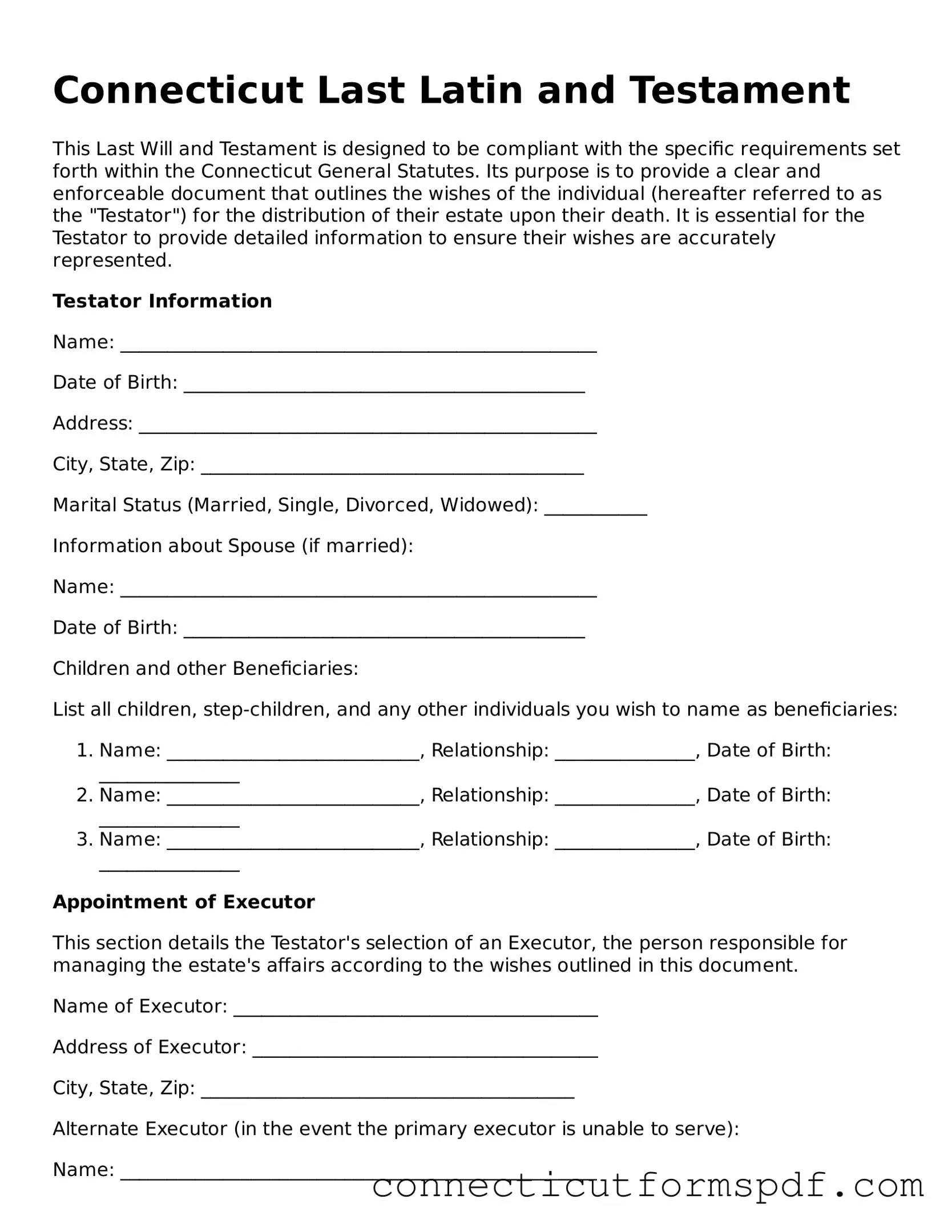Connecticut Last Latin and Testament
This Last Will and Testament is designed to be compliant with the specific requirements set forth within the Connecticut General Statutes. Its purpose is to provide a clear and enforceable document that outlines the wishes of the individual (hereafter referred to as the "Testator") for the distribution of their estate upon their death. It is essential for the Testator to provide detailed information to ensure their wishes are accurately represented.
Testator Information
Name: ___________________________________________________
Date of Birth: ___________________________________________
Address: _________________________________________________
City, State, Zip: _________________________________________
Marital Status (Married, Single, Divorced, Widowed): ___________
Information about Spouse (if married):
Name: ___________________________________________________
Date of Birth: ___________________________________________
Children and other Beneficiaries:
List all children, step-children, and any other individuals you wish to name as beneficiaries:
- Name: ___________________________, Relationship: _______________, Date of Birth: _______________
- Name: ___________________________, Relationship: _______________, Date of Birth: _______________
- Name: ___________________________, Relationship: _______________, Date of Birth: _______________
Appointment of Executor
This section details the Testator's selection of an Executor, the person responsible for managing the estate's affairs according to the wishes outlined in this document.
Name of Executor: _______________________________________
Address of Executor: _____________________________________
City, State, Zip: ________________________________________
Alternate Executor (in the event the primary executor is unable to serve):
Name: ___________________________________________________
Address: _________________________________________________
City, State, Zip: _________________________________________
Bequests
In this section, the Testator can specify particular assets and the beneficiaries to whom these assets should be transferred.
- Asset: ___________________________, Beneficiary: ___________________________
- Asset: ___________________________, Beneficiary: ___________________________
Additional Provisions
Include any additional instructions or provisions that the Testator wishes to communicate, such as funeral arrangements, donations to charities, etc.
Signatures
This document must be signed in the presence of two witnesses, who also need to sign it, affirming that the Testator has indeed signed this document in their presence.
Signature of Testator: ______________________________ Date: _______________
Witness 1 Signature: ______________________________ Date: _______________
Witness 1 Name (Printed): ___________________________
Witness 2 Signature: ______________________________ Date: _______________
Witness 2 Name (Printed): ___________________________
Note: It is advisable to regularly review and update this document to reflect any major life changes, such as marriage, divorce, the birth of a child, or the acquisition of significant assets. Additionally, consulting with a legal professional can provide assurance that this document meets all legal requirements and accurately reflects the Testator's wishes.

